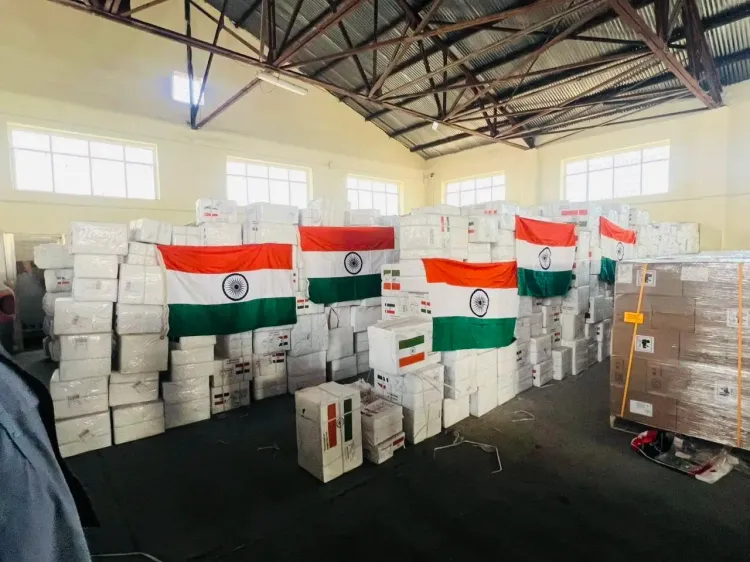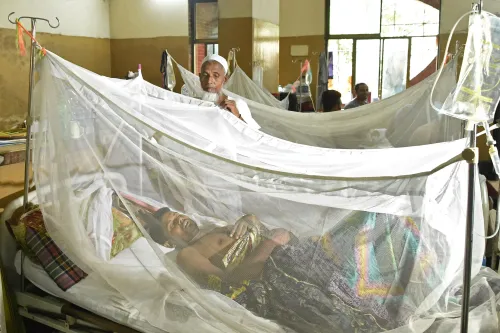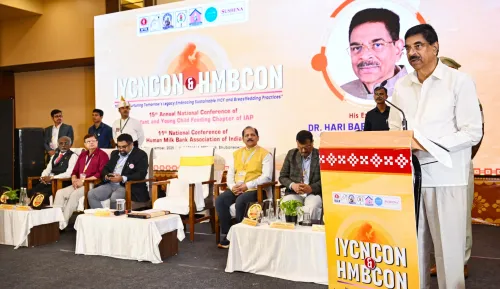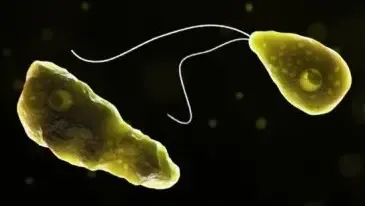How is India Supporting Afghanistan with Medicines to Fight Vector-Borne Diseases?

Synopsis
Key Takeaways
- India has donated over 16 tonnes of medicines to Afghanistan.
- The aid targets vector-borne diseases like malaria, dengue, and leishmaniasis.
- This support is part of Afghanistan's National Malaria and Other Vector-Borne Diseases Prevention Programme.
- The Indian government aims to strengthen public health infrastructure in Afghanistan.
- India's assistance reflects its commitment to humanitarian cooperation in the region.
Kabul, Nov 2 (NationPress) India has successfully delivered more than 16 tonnes of medicines to Afghanistan, aimed at addressing vector-borne diseases such as malaria, dengue, and leishmaniasis, as reported by a spokesperson from the Taliban on Sunday.
According to Taliban spokesperson Sharafat Zaman, these medicines and diagnostic kits are set to bolster Afghanistan's National Malaria and Other Vector-Borne Diseases Prevention Programme. He emphasized that the supplies dispatched by India will significantly enhance the nation's ability to tackle diseases like malaria, dengue, and leishmaniasis.
In a statement shared on X, Zaman remarked: "India has contributed over 16 tonnes of anti-vector-borne disease medicines to Afghanistan. The Indian government has exhibited a considerable act of humanitarian aid by providing these essential medicines and diagnostic kits to the Ministry of Public Health (MoPH). This donation reflects India’s ongoing commitment to fortifying the health sector in Afghanistan and fostering bilateral cooperation in public health and disease prevention."
He added, "The medicines and diagnostic kits will play a direct role in supporting Afghanistan's National Malaria and Other Vector-Borne Diseases Prevention Programme. These supplies aim to enhance the country’s ability to combat diseases that pose significant public health risks in various regions of Afghanistan."
Zaman noted that Afghanistan's Ministry of Public Health expressed gratitude for the Indian government's timely and invaluable support. "The Ministry emphasized that these medicines and diagnostic kits signify a vital advancement in improving public health infrastructure and ensuring effective disease management, especially in vulnerable and high-risk communities. This recent contribution highlights India’s enduring partnership and developmental assistance to Afghanistan. By providing critical medical supplies, India reaffirms its position as a trustworthy ally in promoting health, stability, and humanitarian collaboration in the region," he stated.
This medical assistance from India follows the recent visit of Afghanistan's Foreign Minister Mawlawi Amir Khan Muttaqi to New Delhi in October. On October 10, he met with External Affairs Minister S. Jaishankar, where they discussed India’s support for Afghanistan's development, bilateral trade, territorial integrity, independence, and capacity-building, among other topics. EAM Jaishankar remarked that Muttaqi's visit signifies an "important step" in enhancing bilateral relations. He also announced the delivery of five ambulances to Afghanistan.
Additionally, on October 10, the Ministry of External Affairs (MEA) spokesperson Randhir Jaiswal informed that India had also sent extra food supplies to Afghanistan for those affected by the earthquake. This was revealed during the meeting between EAM Jaishankar and his Afghan counterpart Muttaqi.









